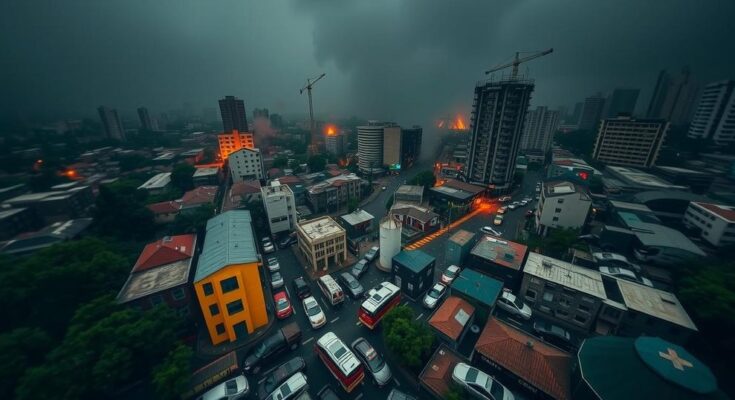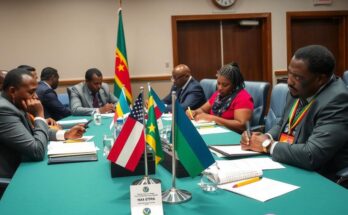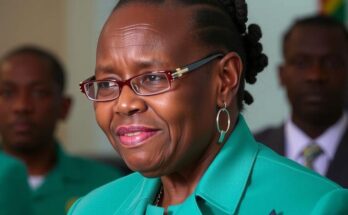The Democratic Republic of Congo struggles with severe poverty and insecurity despite its wealth in natural resources. President Felix Tshisekedi is proposing constitutional reforms that many fear are aimed at extending his presidency, echoing past leaders who employed similar tactics. This raises substantial concerns regarding democracy and stability in the nation, amidst rising global interests in its mineral wealth.
The Democratic Republic of Congo (DRC) faces significant challenges, with the nation characterized as one of the poorest globally despite its vast mineral wealth. Many citizens endure daily hardships due to rampant insecurity, especially in the eastern regions plagued by numerous armed groups. Moreover, the DRC grapples with food insecurity affecting over twenty-three million people, alongside an ongoing Mpox outbreak. President Felix Tshisekedi, who rose to power in 2018 under contentious circumstances, has unveiled plans for constitutional reform following his controversial re-election in 2023. He has criticized the existing constitution, established by referendum in 2005, as outdated and imposed by foreign entities. Tshisekedi proposes forming a national commission to draft a new constitution. However, many Congolese suspect this initiative is a strategic pretext to alter presidential term limits favorable to his continued governance. Such maneuvers echo those of former president Joseph Kabila, who similarly sought to extend his tenure, leading to widespread discontent that ultimately benefited Tshisekedi. The current president appears to disregard the potential backlash from such constitutional changes, signaling a troubling trend of political manipulation reminiscent of the past. With global powers vying for the DRC’s resources, Tshisekedi may feel insulated from international scrutiny, potentially compounding social unrest within the nation.
The Democratic Republic of Congo is endowed with abundant natural resources, yet it struggles with profound economic challenges and insecurity. The country ranks among the poorest worldwide, hindered by ongoing violence, displacements, and health crises. Historically, political instability and attempts to undermine constitutional frameworks contribute to the DRC’s tumultuous political landscape. This situation presents a backdrop against which President Tshisekedi’s recent constitutional reform proposals are unfolding, casting suspicion on his motivations and raising concerns about democratic backsliding.
In summary, the Democratic Republic of Congo is at a critical juncture, where President Tshisekedi’s proposed constitutional reforms raise serious concerns about the preservation of democracy and political stability. His intentions appear to mirror past leaders who sought to prolong their tenure, further complicating an already fragile political climate. It is imperative for both national and international stakeholders to recognize the potential ramifications of such maneuvers on the Congolese populace, ensuring that their voices are not overshadowed by political ambitions.
Original Source: www.cfr.org




